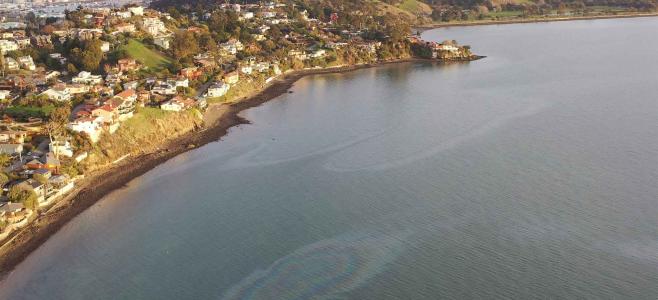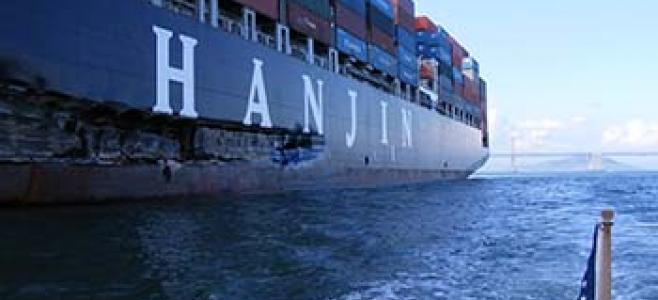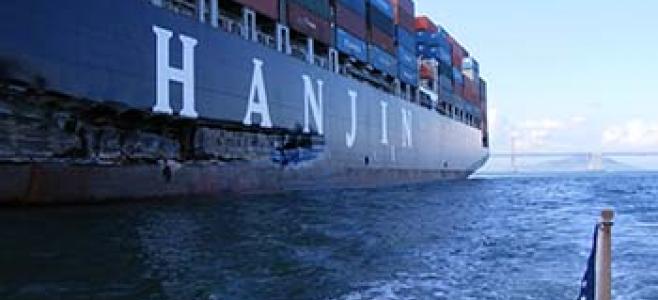Baykeeper recently urged Benicia city leaders to block Valero Energy Corporation’s plan to enlarge the train yard at its Benicia refinery. If Valero gets its way, two 50-car trains per day would carry dirty and explosive crude oil on tracks beside Suisun Bay, a San Francisco Bay inlet and important wildlife habitat area. Oil spilled along Suisun Bay's shore could quickly spread throughout San Francisco Bay.
Yet the project planners greatly underestimate the risk of fires, explosions, and oil spills as a result in the increase in shipping crude oil to the facility by rail.
The proposed expansion of the Valero refinery train yard, officially known as the Valero Benicia Crude-by-Rail Project, is part of a nationwide oil industry push to use trains to move more crude oil across the US. The shipment of crude oil by rail increased by 4,000% between 2008 and 2014, mostly from sources such as the Bakken oil shale in North Dakota, and Alberta tar sands in Canada.
This rapid expansion of crude-by-rail has brought significant environmental and public health risks. Bakken shale oil is volatile and explosion-prone. Tar sands oil is dirty. Both types of oil are being shipped over deteriorating, unsafe railroad infrastructure and bridges. Often, the oil is shipped in tank cars not designed for explosive substances. The result has been an increase in derailments and harm to communities and waterways from oil spills, fires, and explosions.
Baykeeper pointed out that the revised environmental review documents for the Valero project greatly underestimate these risks. The documents claim that the most advanced tank cars, train technology, and emergency response requirements will be in place. However, the railroad industry itself has been fighting to stop these requirements.
Suisun Bay is a nursery for many species of fish, and an important stop for birds migrating along the Pacific Flyway. An oil spill there would be a major threat to Bay wildlife.
But the environmental impact documents don’t propose any mitigation of environmental harm the project could cause. The documents are based on the incorrect assumption that federal railroad law releases Benicia and Valero from any responsibility for mitigation.
Our partners in opposing the project include the Natural Resources Defense Council, Communities for a Better Environment, Center for Biological Diversity, Sierra Club, and a number of local citizens groups.
Last year, Baykeeper submitted comments on the original environmental impact documents. Opposition to the project by Baykeeper and other groups and individuals led the Benicia City Council to delay approval of the project and require the revised environmental documents.
We have also been working on several other fronts to protect San Francisco Bay and its wildlife from the threat of increased shipping of crude oil by train in and out of the region:
- Baykeeper helped orchestrate the passage of a 2014 state law that provides California’s rivers, lakes, and creeks with oil spill protections previously given only to coastal waters. When the railroad industry sued to overturn the law’s requirement that railroads be prepared to clean up oil spills from train accidents in California, Baykeeper filed an amicus brief in the law’s defense. The railroad’s lawsuit was dismissed and protections remain in place.
- We joined with Waterkeeper organizations across the country to urge federal regulators to tighten lax regulations on crude oil shipped by rail.
- Acting in coalition, we advocated for a resolution passed unanimously by the Oakland City Council to oppose the shipment of oil by rail through the city.
- Baykeeper is fighting the proposed re-opening a now-closed oil storage facility in Pittsburg that would facilitate more oil being shipped into the Bay Area by rail.
In addition, we also have a long history of improving oil spill protections for San Francisco Bay. Baykeeper was a lead responder to the Cosco Busan oil spill of November 2007 that released 53,000 gallons of heavy fuel into the Bay. Since then, we have played a key role in improving oil spill response policy in the Bay Area, California, and across the country.
Baykeeper will keep working to oppose the expansion of the shipment of crude oil through the Bay Area, and to ensure that San Francisco Bay has the best possible protections from oil spills.


